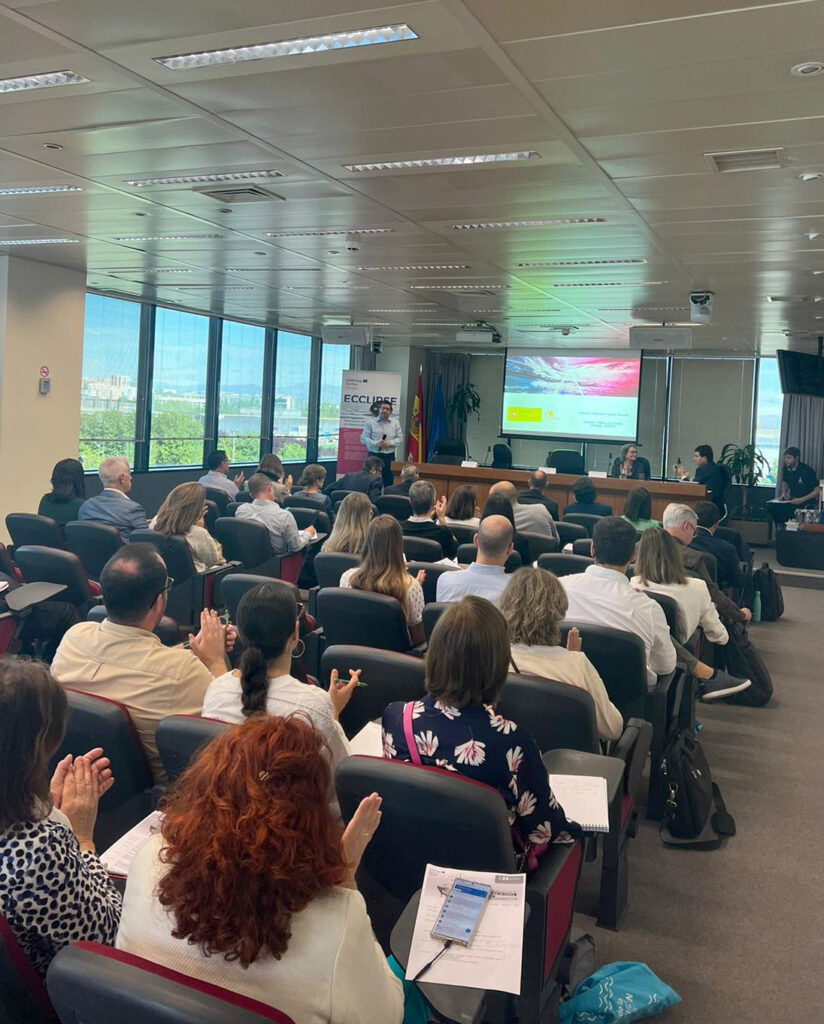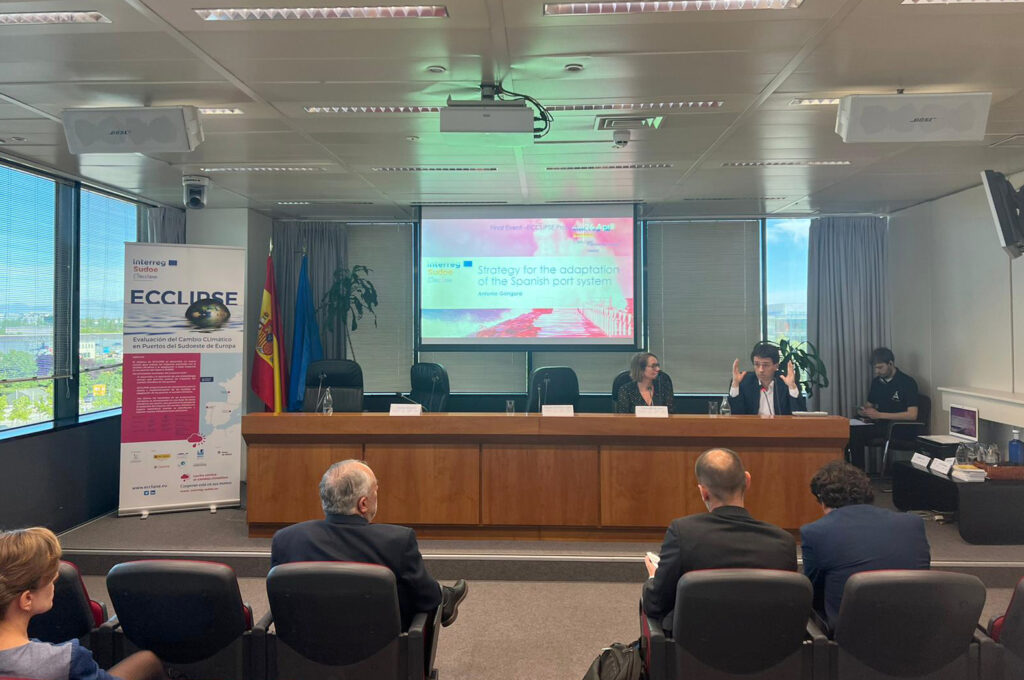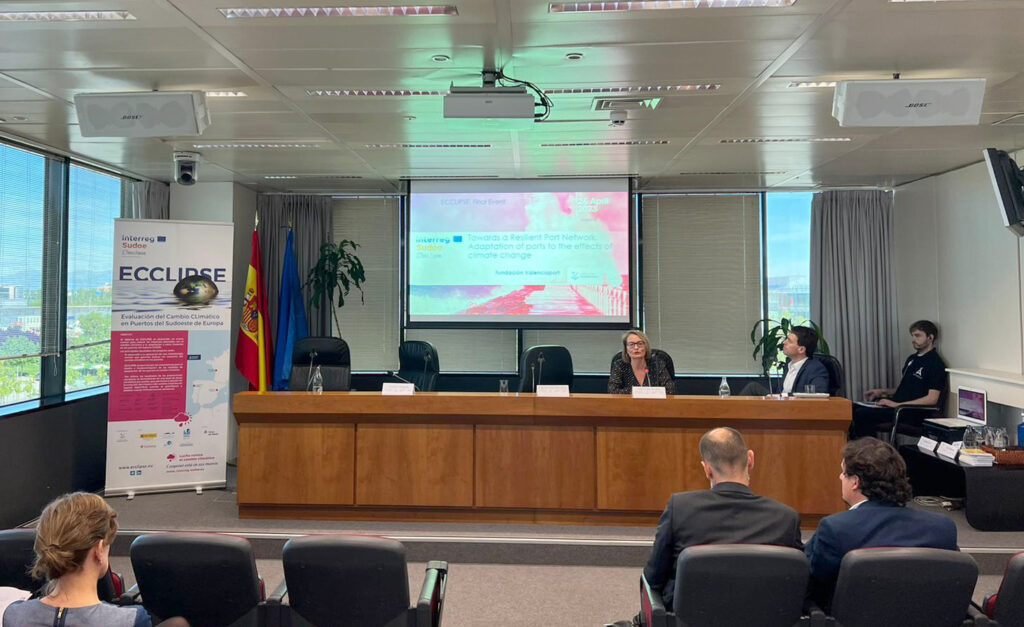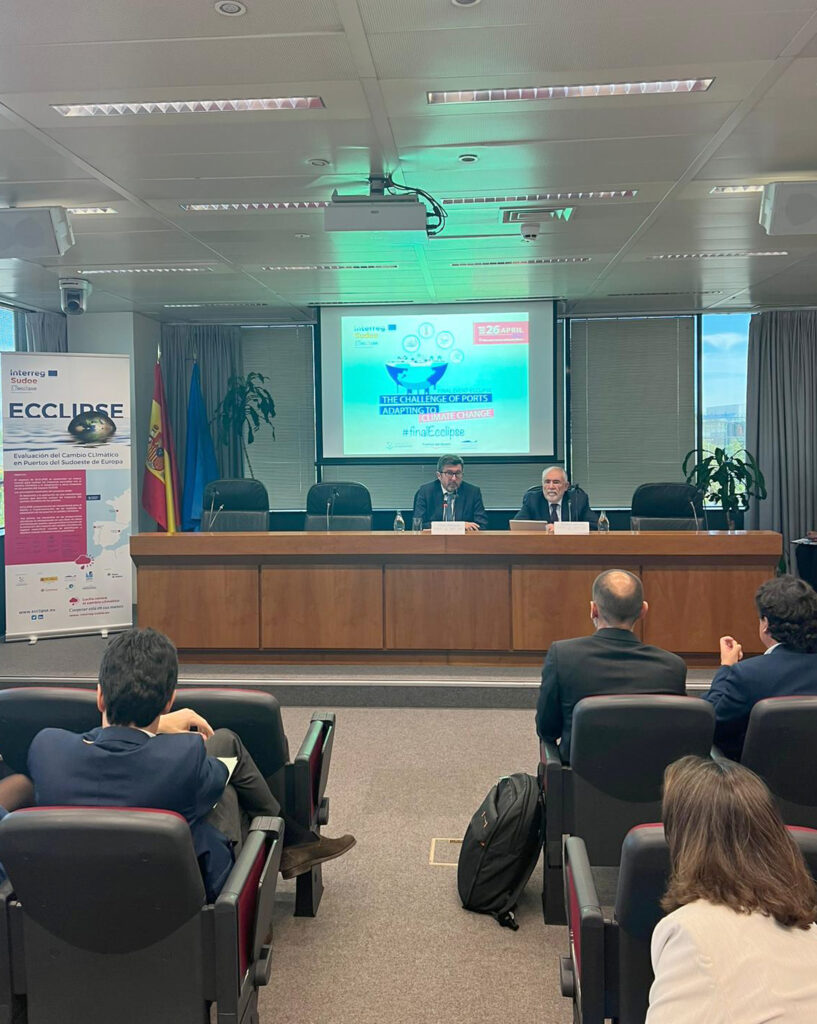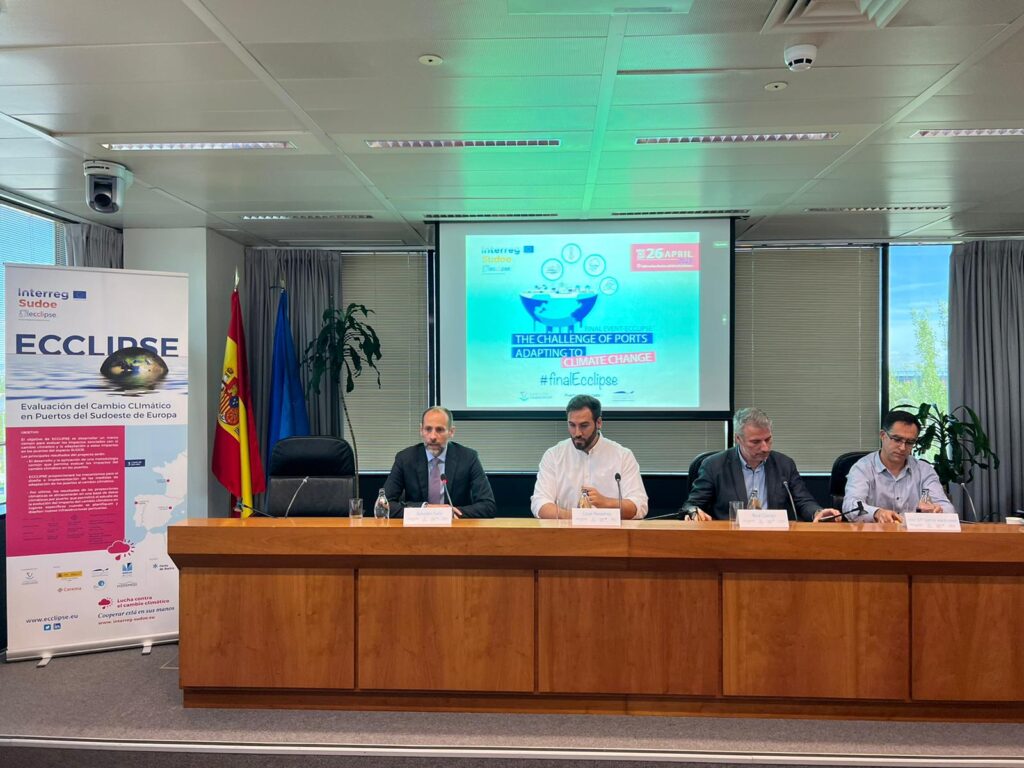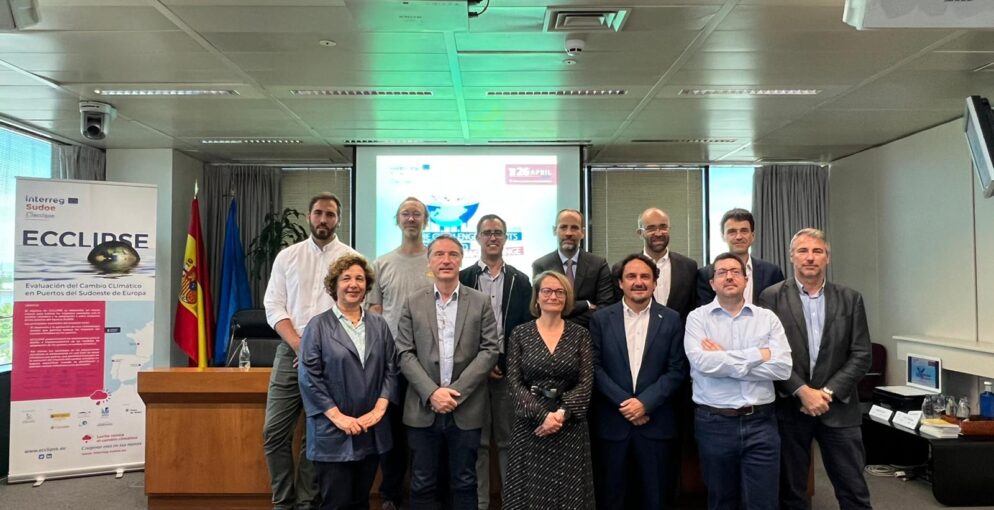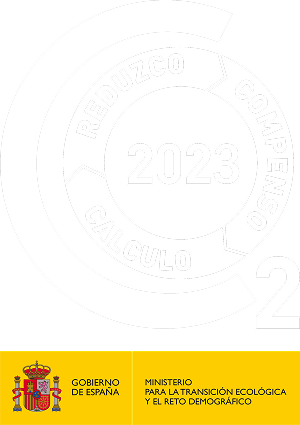Valencia, 26 April 2023. – The president of Puertos del Estado, Álvaro Rodríguez, together with the director of the Port Authority of Valencia, Francesc Sánchez, and the director of Interreg Sudoe, Isabelle Roger, presented the conference dedicated to “The challenges of ports to adapt to climate change” which was held at the headquarters of Puertos del Estado in Madrid. During the conference, the results of the European project ECCLIPSE-Evaluation of climate change in ports of Southwest Europe, co-financed by the European Commission through the Interreg V-B Southwest Europe Programme and led by the Fundación Valenciaport, were also presented. The main objective of the project is to analyse the impact of climate change on ports, developing early prediction tools and models that allow a thorough understanding of its impact on a local scale.
Depending on the location of each port, climate change will trigger more or less extreme environmental conditions, which could lead to the total or partial closure of operations. Industry, freight distribution centres, producers and ultimately consumers would be largely affected. The development of an effective adaptation strategy requires the availability of tools that allow for a thorough understanding of the impacts of climate change on a local scale, as opposed to the current models which, due to their global nature and wide time range, are not effective for decision-making.
Under the coordination of the Fundación Valenciaport and with the participation of the Port Authorities of Aveiro, Bordeaux and Valencia, Puertos del Estado, the Foundation for Climate Research, HIDROMOD and CEREMA, models have been developed to predict the effects of climate change. In close collaboration with the port community, the vulnerabilities of each port to the impacts of climate change have been analysed. The fundamental objective has been to have measures of adaptation of the ports, which will have to be included within a wider framework, making it possible to guarantee that at least 80% of the logistics chain remains operational in the event of any extreme climatic phenomenon.
The day began with the presentation of the National Strategy for Adaptation to Climate Change by Antonio Francisco López Nicolás, Head of Section of the Spanish Climate Change Office. Next, Antonio Góngora, Deputy Director of Connectivity, Sustainability and Physical Environment of Puertos del Estado, presented the criteria for the development of the strategy of the state-owned port system in terms of adaptation to climate change. Within this strategy, the ECCLIPSE project constitutes a pilot test which has been successfully developed in the ports of Valencia, Sagunto and Gandia.
Mercedes de Juan Muñoyerro, head of Projects of the Fundación Valenciaport and coordinator of ECCLIPSE, then presented the methodology developed within the framework of the project and the main conclusions reached after applying this methodology in five ports of very different types.
The speakers at the conference were top level experts such as José María García-Valdecasas, from NOLOGIN; José Chambel from Hidromod; Nicolas Huybrechts from CEREMA; César Parádinas, Consultant of the Foundation for Climate Research.
Finally, Raúl Cascajo, Head of Environmental Policies of the Port Authority of Valencia; María Manuel Cruz, Director of Environment of the Port of Aveiro and Fabrice Klein, from the Mission Innovation team of the Port of Bordeaux, presented the main results obtained in each port.
One of the main conclusions of this project is the change of paradigm in the design of port infrastructures. Until now these infrastructures were designed taking into account the “past” climate, but now they will have to be designed according to the “future” climate. The importance of monitoring the impacts of climate change has also been emphasised, for which observatories have been set up in each port to validate the models for predicting the impacts of climate change developed in the project, to update the evolution of vulnerabilities in each of the ports and to have data available to define the adaptation itinerary.
The progress made in the ECCLIPSE project will contribute to the development of the goals set in terms of adaptation to climate change in the new Strategic Framework of the Port System of general interest, such as the approval of the Adaptation Plans of all the ports and the establishment of a Port Climate Change Observatory.
The event was brought to a close by the director of the Fundación Valenciaport, Antonio Torregrosa, who assessed the event as very useful in that it will make it possible for the port infrastructures of the future to be safer and more durable.
